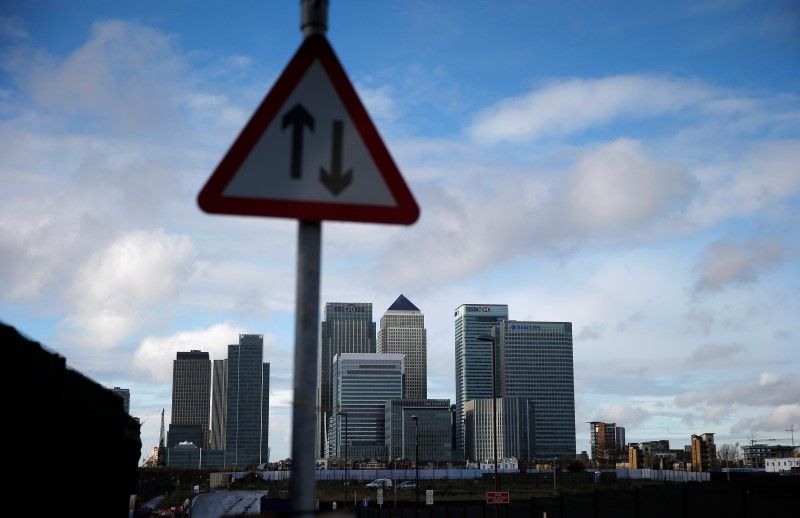A week after Britons voted themselves out of the European Union, many London-based bankers and their employers face two options if they are to secur
A week after Britons voted themselves out of the European Union, many London-based bankers and their employers face two options if they are to secure their futures: lobby or leave.
Some investment banks, anxious not to stir speculation of an exodus from the historic City of London and its modern counterpart at Canary Wharf, have given out “business as usual” messages since last week’s shock referendum result.
But beyond the soothing words the wider industry is hastily organizing a lobbying effort in the hope London can keep selling financial services across Europe, a right to which it has become accustomed but may lapse when Britain finally exits the 28-nation bloc.
The alternative for banks and bankers, growing increasingly insecure in an information vacuum that has developed since the June 23 vote, is to get out. Headhunters report a level of anxious calls they haven’t seen since the 2008 global crisis, with bankers asking about prospects in rival financial centers that remain in the EU, or those in Asia and the United States.
Banks and other financial firms have rallied together, forming a group to devise a strategy for protecting the turf of an industry that is Britain’s biggest exporter and accounts for more than 10 percent of its tax revenues.
Even Britain’s biggest lenders are relying on the group – led by Shriti Vadera, chairwoman of the UK arm of Spain’s Banco Santander who is also a former business minister – for guidance in such uncertain times.
“We are looking to them to have an intelligent response,” Barclays chairman John McFarlane told an industry event on Thursday. “We neither know the shape or direction of things to come. It’s far from certain what we might be able to secure from discussions with the EU.”
With the British government in disarray, European politicians are threatening to clip the wings of the London financial center that is home to more than 250 foreign banks and more than three-quarters of the EU’s capital markets activity.
French President Francois Hollande has backed calls for London, the world’s biggest currency trading center, to lose its right to clear deals denominated in euros. Likewise, the right of banks based in Britain to operate across the EU under the bloc’s financial “passporting” arrangement could also go if it loses access to the single European market.
DISTANT SEPTEMBER
Britain has yet even to say when it will formally inform the EU of its intention to leave, a move that will start two years of divorce negotiations. Prime Minister David Cameron has said he will resign, but left the formal exit notification to his successor who is unlikely to be installed until September.
Leading “Leave” campaigners have also yet to say precisely what they want, beyond stating their desire to control the right of EU citizens to work in Britain – something Brussels says is impossible if the country wants to stay in the single market.
So while the financial sector is poised to lobby, it has little idea of whom it must present its case to on the British side.
“We are ready to talk, but we don’t know who we should be talking to,” said a senior banking industry source involved in the discussions. “No-one has defined ‘leave’, so we don’t know what it is that we’re dealing with … September feels a very long way off.”
Bankers said their message to European officials is that keeping Britain in the single market would be better for economic growth and jobs across the bloc. Fights over where banks do their business and forcing them into major overhauls of their operations would damage the broader financial system, they argue.
Some dislike being told what to do, such as HSBC Chairman Douglas Flint, whose bank decided only earlier this year against moving its headquarters from London. “Politicians can’t dictate where things are done,” he told Thursday’s TheCityUK annual conference.
Sometimes the relationships needed for lobbying are only now being established. The benefits of passporting have meant that U.S. investment banks in particular have rarely discussed broad market access issues with European officials, meaning they are starting their charm offensive from scratch.
WHERE TO GO NEXT
Rumors are swirling that banks and other financial firms, which together employ more than 2 million people across Britain, will move staff to the likes of Frankfurt, Paris or Dublin.
fonte yahoo finance


